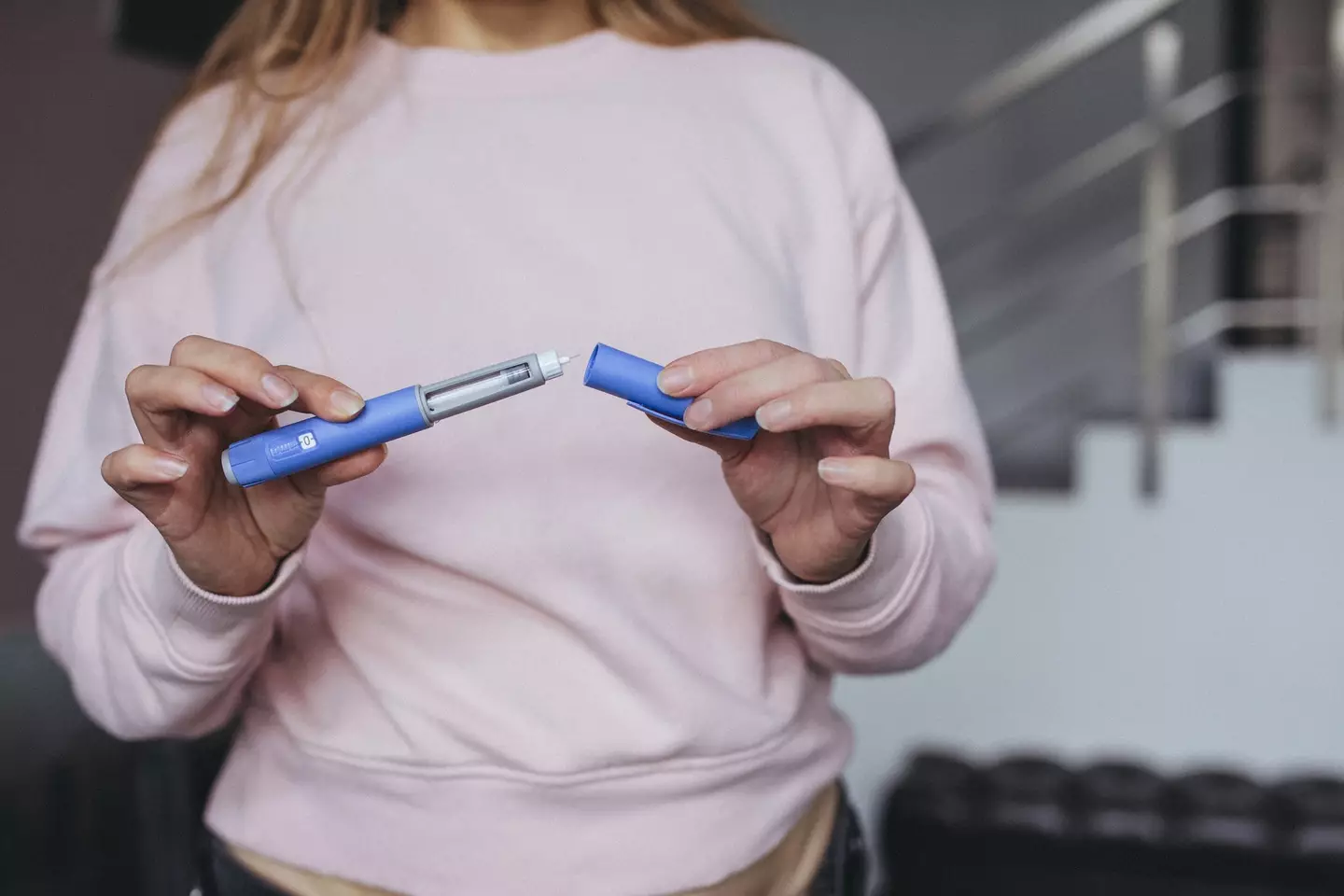
A new study has revealed exactly what happens to your body when you finish taking weight loss drugs.
Taking medications such as Ozempic, Wegovy or Mounjaro to shed the pounds has become increasingly popular in recent years, with a whole host of celebrities having admitted to using them.
Although only two of those three drugs are approved in the US to tackle obesity, with Ozempic only approved to treat patients with type-2 diabetes.
While popularity has surged since weight loss pens first became the talk of Hollywood in 2021, with Whoopi Goldberg, Tracy Morgan and Rebel Wilson all having shared how they all took it, there are still prevalent side effects to taking and kicking it.
Advert
A new study by Han Wu and Wenjia Yang, both of the department of endocrinology and metabolism at Peking University People’s Hospital, in China, has revealed that patients taking GLP-1 medications have a tendency to actually put on weight.

The researchers analyzed 11 randomized controlled trials, which included a total of 2,466 participants who took weight loss drugs for at least four weeks and were then followed for at least another four weeks after stopping the medication.
They compared how much weight people lost while on the drugs and how much they gained back afterward. Four weeks after finishing taking the drugs, patients still had some weight loss compared to those who never took the drugs, although there wasn't a stark difference.
However, eight weeks on from stopping participants actually reported putting weight back on - significantly more than those who didn't take the medication.
After three to five months from stopping taking weight loss drugs, weight regain had continued and even got worse - with the biggest weight regain coming from the participants who were taking GLP-1 drugs.

Wu and Yang concluded: "Significant weight regain occurred eight weeks after discontinuation of AOMs [anti-obesity medications] and was sustained through 20 weeks. Different weight regain was observed in subjects with different characteristics.
"Studies with longer follow-up duration are required to further investigate the potential factors associated with weight change after discontinuation of treatment."
Ozempic and Wegovy manufacturer, Novo Nordisk, re-emphasized that Ozempic should not be used for weight loss and told UNILAD the results of its own trial.
A spokesperson said: “Results from the STEP trials demonstrate that weight regain is likely once medication is stopped. Clinical experts consulted by Novo Nordisk view obesity as a chronic disease that should be managed similar to long-term health conditions such as diabetes and hypertension.
"These results are in line with other Glucagonlike peptide-1 receptor agonists (GLP-1 RAs) researched for weight loss.
"Eligible patients for Wegovy® use should be referred to specialist weight management services by their GP or local pharmacists. These services provide knowledge, tools, and support for successful, sustainable weight loss with a focus on promoting long-term health and wellbeing. Weight management services typically include teams of dietitians, dietic support workers, clinical psychologists, counsellors, doctors, and nutritionists available to support on the weight loss journey.”
UNILAD has contacted Mounjaro's manufacturer Eli Lilly and Company for comment.